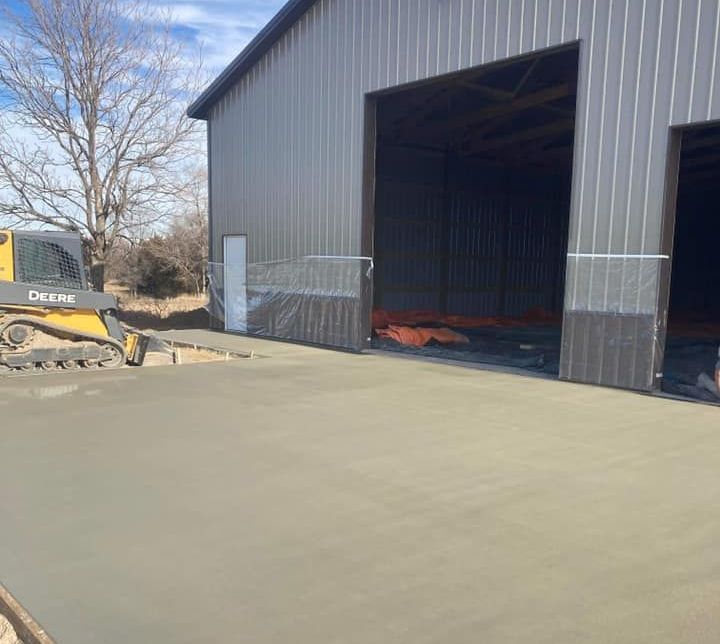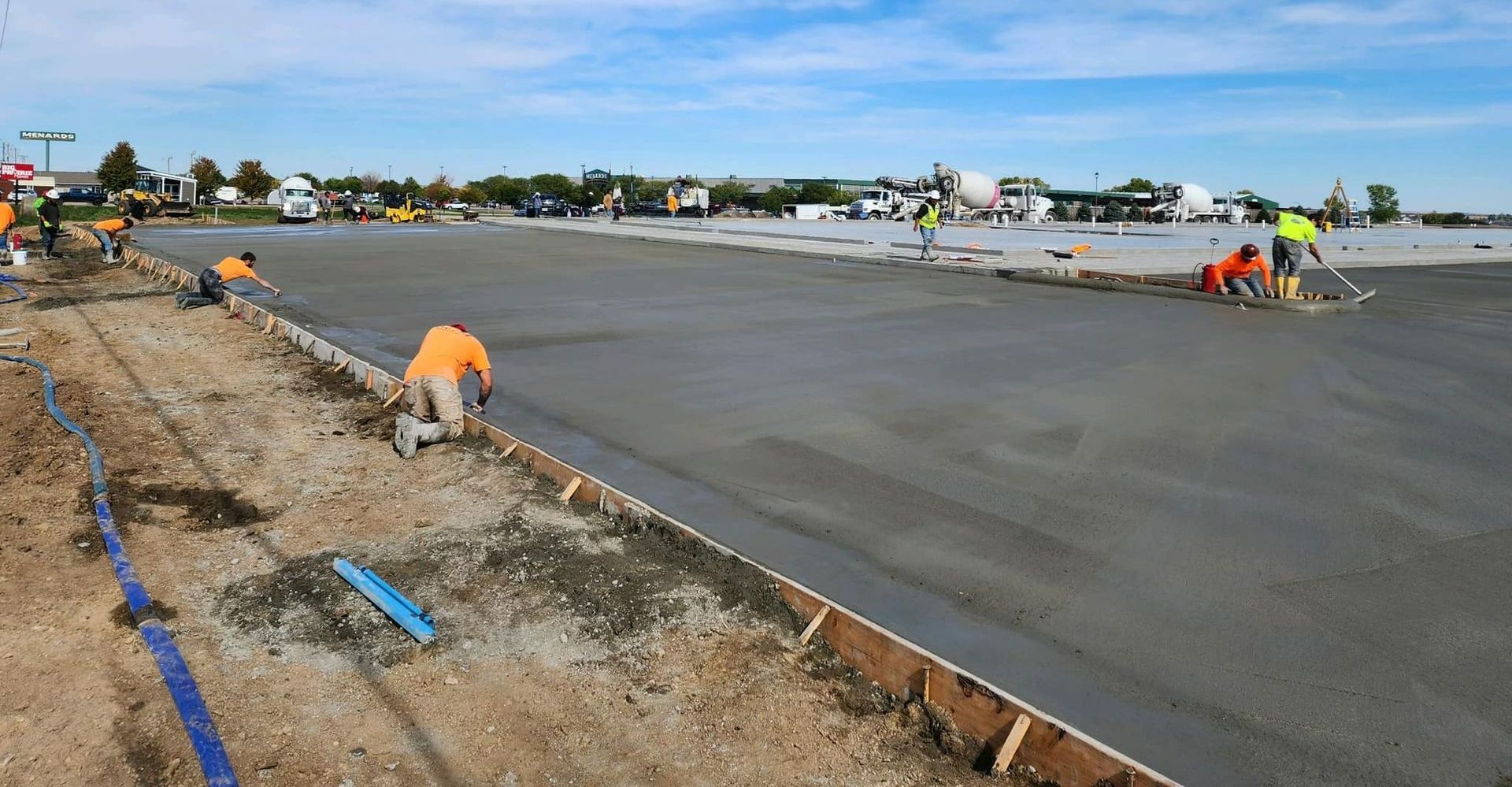Agricultural
Concrete Services in Grand Island, NE
We offer durable
agricultural concrete services. From durable barn floors and silo foundations to efficient water troughs and feed bunks, our solutions support the unique needs of the farming community. Our focus is on providing reliable, long-lasting structures that enhance the functionality and productivity of your agricultural operations.

Durable Concrete Solutions for Farm and Barn Flooring in Grand Island, NE
Our farm and barn flooring services in Grand Island, NE, are built to withstand the rigorous demands of agricultural use. Crafted from high-quality concrete, these floors are resistant to heavy machinery, livestock wear, and spillages, ensuring a durable and easy-to-maintain surface that supports the daily operations of your farm or barn efficiently.
Enhancing Agricultural Efficiency with Custom Concrete Structures
We're all about boosting your farm's efficiency with custom concrete structures. Think silos, storage units, and even specialized areas for livestock.
Reliable Concrete Water Troughs for Livestock
They're tough, reliable, and pretty much maintenance-free. Plus, they keep the water cooler in the heat, which your animals will love. It's a simple upgrade that makes a big difference in your daily farm routine and animal welfare.
Sturdy Concrete Silo Foundations in Grand Island, NE
These aren't just any foundations; they're engineered to support your silos through thick and thin, ensuring they stay upright and functional no matter what Mother Nature throws their way. It's about giving you peace of mind, knowing your grain storage is on solid ground.
Transform Your Agricultural Space with Concrete Feed Bunks in Grand Island, NE
Our concrete feed bunks in Grand Island, NE, are a solid choice for feeding your livestock. They're designed to minimize waste, making feeding time efficient and cost-effective.
Frequently Asked Questions About Agricultural Facilities Concrete Work
Ready to Upgrade Your Agricultural Facility with Durable Concrete Solutions?
Contact us today to discuss how we can enhance your agricultural space with our concrete services.
Let's build a stronger foundation for your agricultural operations together. Reach out now!


